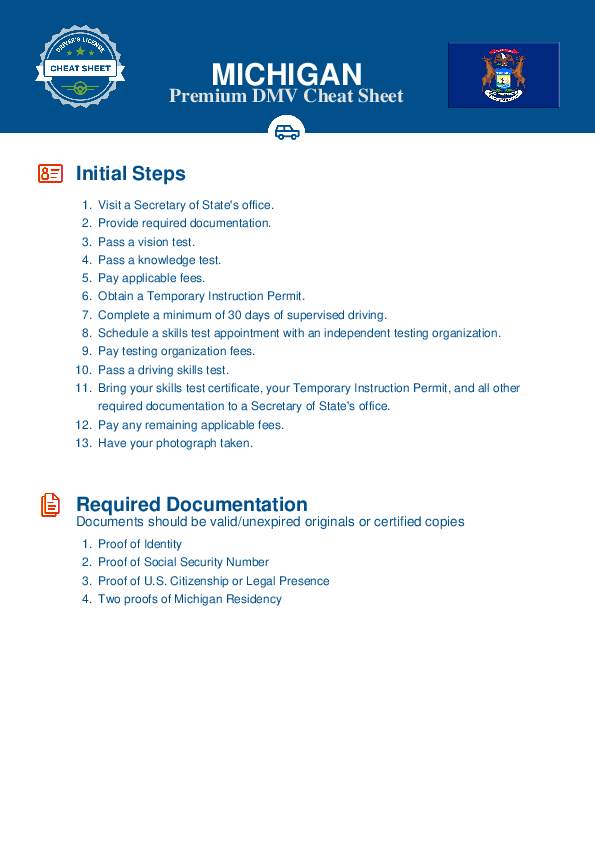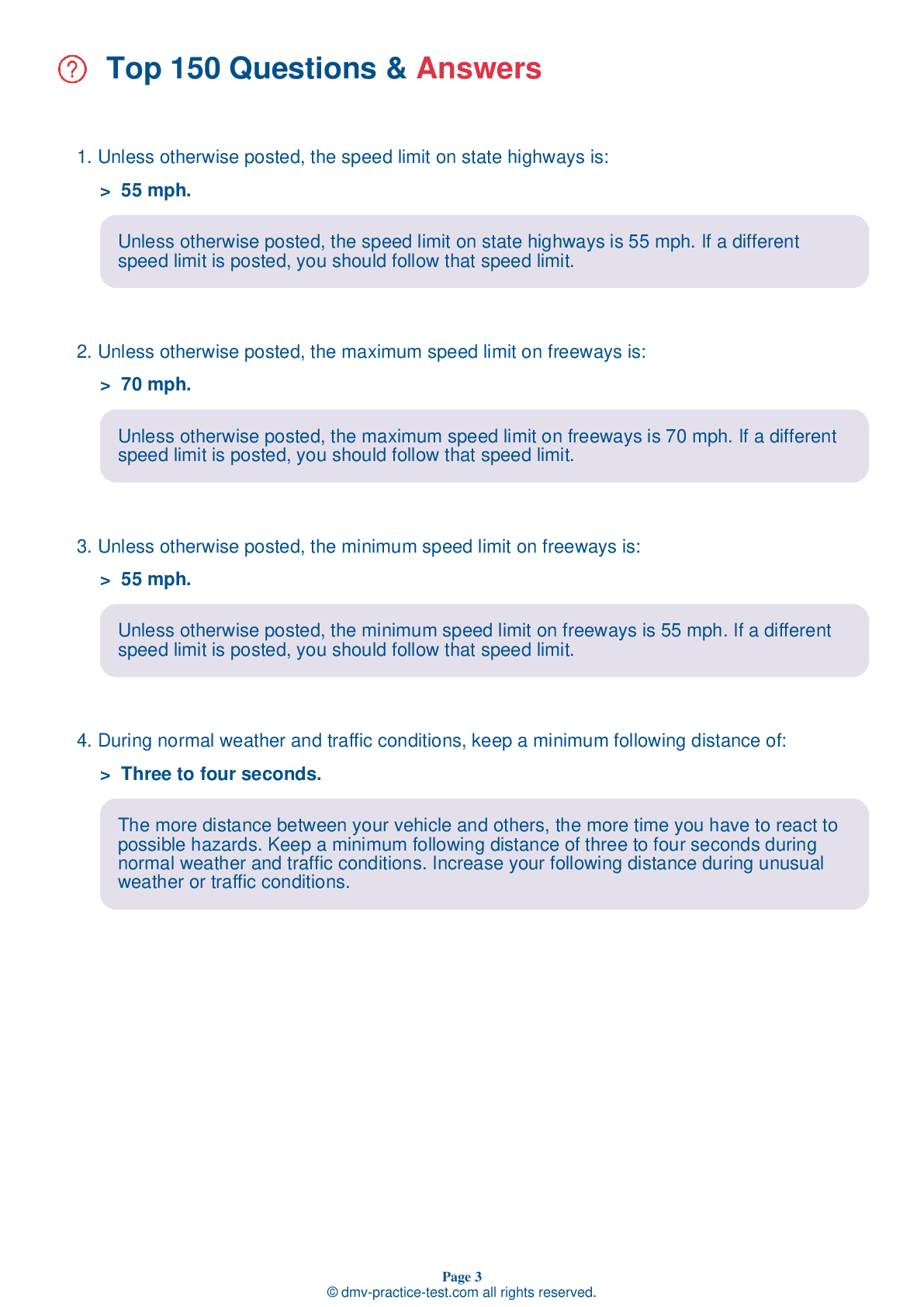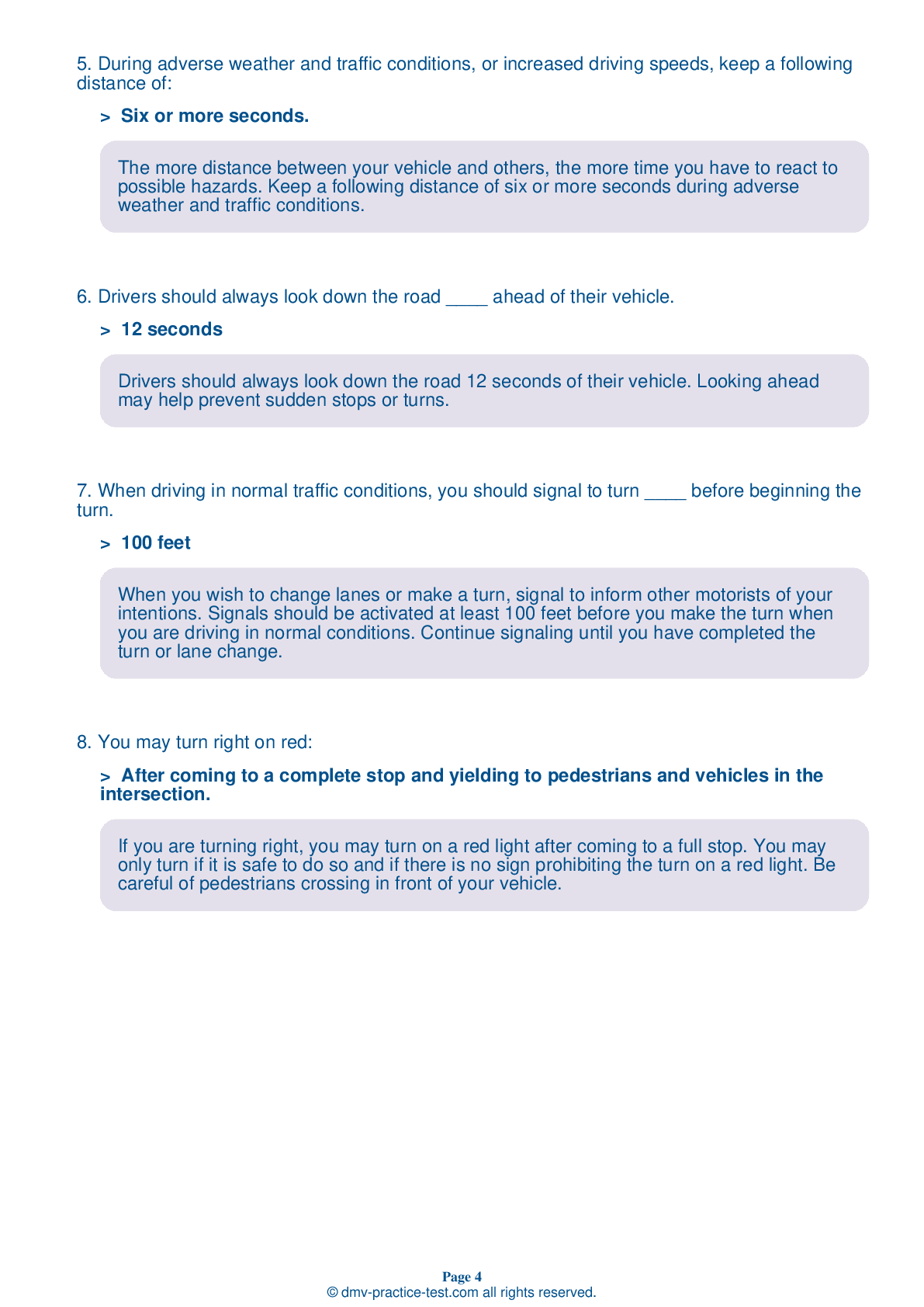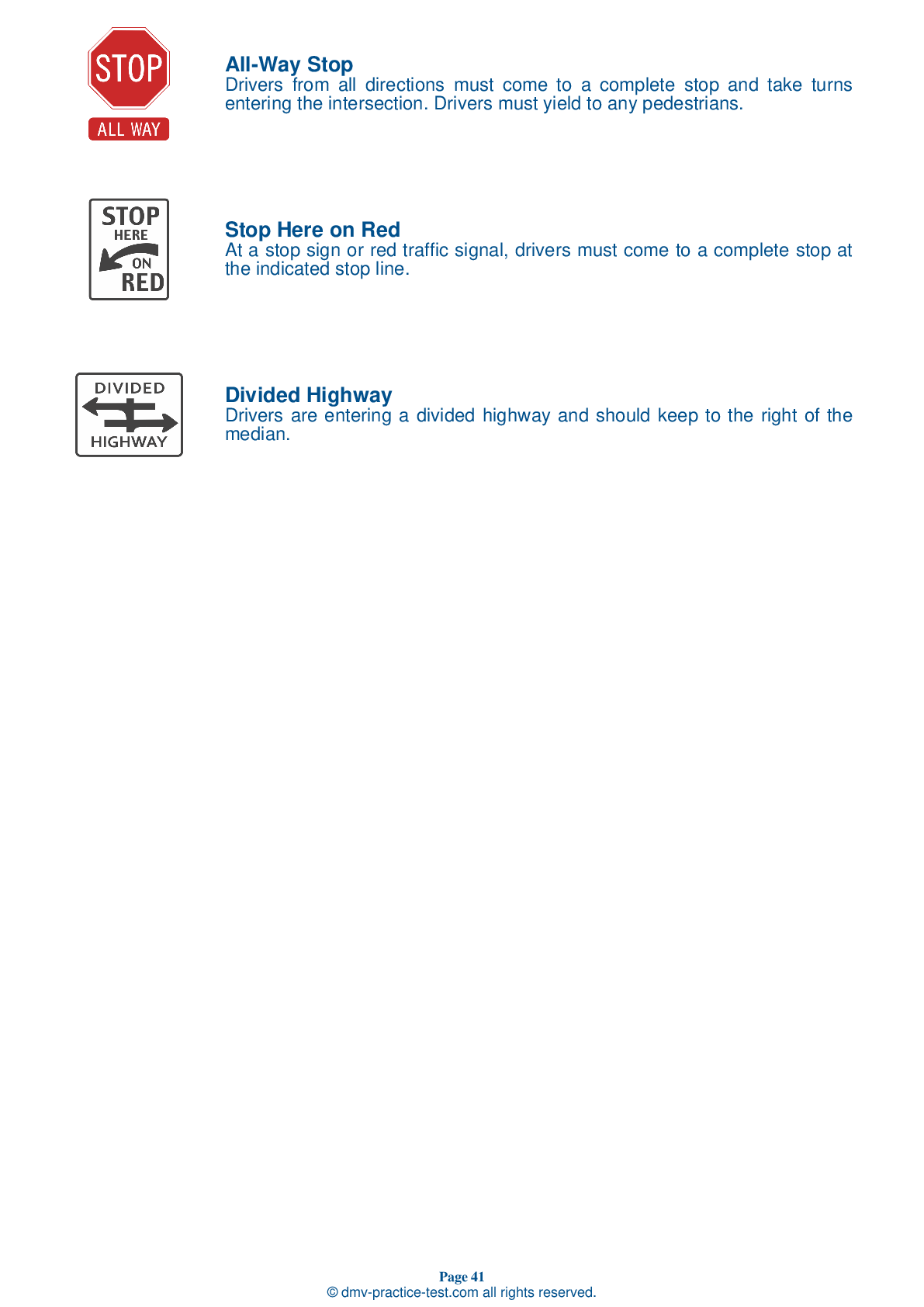FREE Michigan DMV Practice Test #11 Page 7 of 7
The practise exams for the Michigan DMV have been updated for January 2026. It comprises questions based on the most important traffic signals and regulations for 2026 from the Michigan Driver Handbook. To study for the DMV driving permit test and driver's licence exam, use actual questions that are very similar (often identical!) to the DMV driving permit test and driver's licence exam.
Each question on the practise exam has a tip and explanation to help you recall the ideas. Questions about traffic rules, traffic signs, and driving statutes, as well as knowledge from the Driver Handbook, will be included in the written portion of the official Michigan DMV test.
You must properly answer 40 of the 50 questions to receive a passing mark. Take our Michigan DMV practise exam to help you prepare for your instruction permit or driver's licence.
The DMV exam is offered in a variety of languages.
Using any form of testing help will result in an automatic fail, and the DMV may take further action against your driver's licence, so avoid it.
43 . Blood alcohol content (BAC) depends on each of the following, except:
Your blood alcohol content (BAC) depends on how much alcohol you drink, how much time passes between drinks, and your weight. It is not affected by the type of alcoholic beverages you drink, your level of physical fitness, or how well you can "hold your liquor."
44 . Which of the following statements is true?
When passing, you must always signal at least 100 feet in advance of your lane change. Always check behind you in your mirrors and look over your shoulder to check your blind spot. Wait until you can see both headlights of the passed car in your rearview mirror before returning to your original lane.
45 . A good rule to remember for passing is:
Each time you pass another vehicle, there is an increased chance for a collision. If you are moving faster than surrounding traffic, you will have to continue passing others. Drive with the flow of traffic, within the legal speed limit, and pass only as needed.
46 . Pennant-shaped signs indicate:
Pennant-shaped signs usually indicate no passing zones. Text will also be on the sign to confirm that it is a no passing zone.
47 . When changing lanes, you should:
Other cars and motorcycles are often hidden in a vehicle’s blind spot, so be sure to glance over your shoulder before you begin a lane change. Begin signaling 100 feet before changing lanes or turning in a residential area. Signal five seconds in advance when changing lanes on a freeway.
48 . What should you do if your vehicle’s right wheels leave the pavement?
If your vehicle’s right wheels leave the pavement, don't panic. Take your foot off the accelerator and steer parallel to the road. Slow down and ease back onto the roadway by keeping both hands on the steering wheel and steering into the road’s right lane with a small turn of the steering wheel. Check for traffic around you before steering back onto the pavement.
49 . What does alcohol do to your driving skills and judgement?
Alcohol negatively affects many skills needed for safe driving, including your reaction time and ability to see clearly. It can also harm your judgment of speed and distance, lower your inhibitions, and make you more prone to taking chances.
50 . When you see this sign, it means:
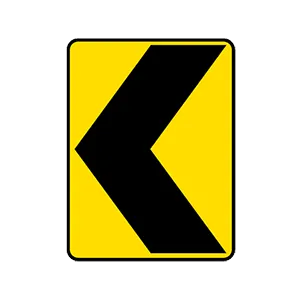
Chevron signs like this indicate that the road curves sharply in the direction indicated by the chevron (in this case, to the left). There may be several chevron signs placed throughout a curve.
Need Car Insurance? No problem!
Compare the best rates in Michigan and find a personalized policy that meets your needs.
1. Are You Currently insured ?
2. Married ?
3. Do you own your Home?
4. Do you have more than 1 car ?
5. Have you or a Family Member Honorably Served in U.S. Military ?
6. Your Name
7. Age
8. Zip code
IMPORTANT REMINDER:Auto Insurance is Mandatory to drive in Michigan. Get covered before you hit the road to avoid any fines.
Ranked by best match
